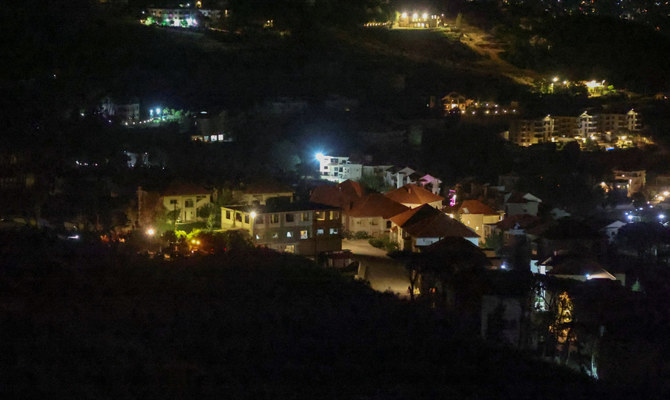
- ARAB NEWS
- 12 Jul 2025

BEIRUT: Poor visibility caused by fog or a technical malfunction are being blamed for a Lebanese army helicopter crash that killed two crew members and injured a third.
Investigators said they had been told by eyewitnesses that the helicopter appeared unstable in the air shortly before crashing near the Hammana military barracks, 33 km east of Beirut, late on Wednesday.
Capt. Joseph Hanna and First Lt. Richard Saab died instantly. A third crewman, First Adjutant Mohammed Sidah, was badly injured.
However, investigators also believe that poor visibility and foggy conditions may have played a part, forcing the helicopter to fly at dangerously low altitudes before it struck trees on a wooded hillside.
The crash occurred at a time when at Beirut’s Rafic Hariri International Airport faces an acute shortage of air traffic controllers, with staff warning that “inhumane schedules” are threatening air traffic safety.
Thirteen air traffic controllers, who have been working shifts to monitor airport traffic 24 hours a day, are threatening to work only from 7 a.m. till 8 p.m. from Sept. 5.
The 13 include heads of departments, sections and branches. Only six work in the radar tower, assisted by two retired contracted controllers.
On Thursday, air traffic controllers revealed “the torment has been going on for years.”
Staff claimed that they were reluctant to reveal the extent of the problem earlier for fear of the effect on airlines, aircraft insurance companies and the International Civil Aviation Organization.
“We are working for crumbs. We are tired and exhausted as a result of working inhumane schedules, which are unacceptable, neither in Lebanon nor internationally,” one controller said.
“Our schedules exceed 300 hours per month, other than the times where we cover occasional and enforced absences, given that most of us are over 50 years of age.
“Each of our controllers is now taking on the work of more than four controllers, which is very dangerous and jeopardizes air traffic safety.”
Staff voiced their frustration at the administration’s response to “any solution we propose,” claiming that management “deals lightly with all the suggestions that we put forward.”
However, a source at Beirut airport accused air traffic controllers of trying to blackmail the airport’s administration over the issue.
“Those controllers who operate the airport today, ensuring the safety of air navigation, are not satisfied with the salary they receive, which is $2,500 per month. They want a raise.
“They are trying to blackmail the airport’s administration and have already caused air traffic to stop for hours.”